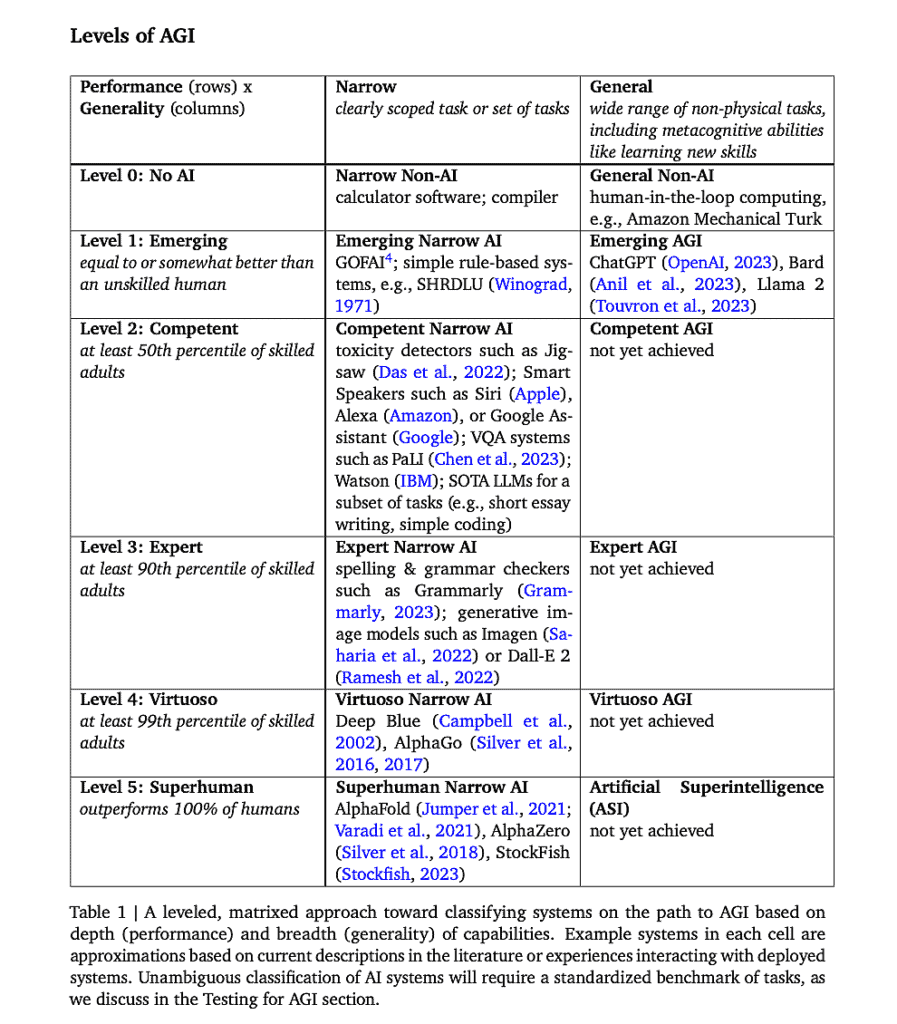Call for proposals evaluating the impact of AI on Poverty, Health, Energy and Climate SDGs
Grants archive
Project Summary
Uroš Ćemalović, a Serbian lawyer and researcher at the Center for Ecology and Sustainability, will evaluate the impact of AI on the achievement of SDG target 13.3, with a focus on education on climate change mitigation. Two questionnaires will gather data on the level of inclusion of AI-based educational tools at universities, the level of interoperability of these tools in natural and social sciences and how educators feel about it. The main observed tendencies will then be extrapolated for the period 2024-2030.
Project Summary
At the Energy and Resources Institute in New Delhi, Reeta Sharma and her team will conduct a thorough examination of existing literature to identify AI applications utilised in climate change mitigation and adaptation efforts, as well as a qualitative analysis to discern trends, patterns, and potential challenges associated with employing AI for climate action. The team will then employ a range of analytical methods, including scenario planning, modelling and simulation, to project AI's impact on achieving this SDG (13).
Project Summary
A research team at the International Research Centre on Artificial Intelligence (IRCAI), under the auspices of UNESCO, led by Marko Grobelnik and Joao Pita Costa, seeks to evaluate the impact of AI on poverty alleviation efforts, under SDG 1.5. To do so, the IRCAI will build on the knowledge and experience gained with the OECD AI Policy Observatory, with a comprehensive framework encompassing three key metrics: access to essential services; income levels and economic activity; and social equity and inclusion. Further analysis will then integrate predictive modeling, scenario analysis, and policy impact simulations to offer insights into future trajectories of AI's role in poverty alleviation.
Project Summary
Surekha Tetali, professor at Mahindra University in Hyderabad, India, will conduct a meta-analysis of existing AI applications, research, reports, and case studies demonstrating the direct or indirect impact of AI on temperatures, as part of SDG 13 on climate action. The will involve examining AI interventions across various temperature regulation and climate change mitigation domains, including energy management and industry, as well as the role of AI in temperature and heat hazard forecasting. A regression study, a cost benefit analysis, and a policy study will then estimate the projected benefits or disadvantages of AI in heat mitigation in the future.
Project Summary
Sumaya Adan, an Oxford Martin AI Initiative researcher from Kenya, asks ‘How has AI impacted SDG 1, poverty alleviation in low-resource contexts, over the past decade, and what lessons can inform prioritising and scaling AI solutions through public-private-people partnerships to accelerate progress by 2030?’ To answer these questions, Adan will develop a framework of relevant AI capabilities, review low-resource, AI-based poverty alleviation interventions between 2010-2020, identify key success factors, challenges and unintended consequences, and engage diverse stakeholders. She will then develop a set of plausible scenarios for the future of AI in poverty alleviation, assess the potential interactions and dependencies between AI capabilities, SDG 1 targets, and external factors, identify the most promising AI applications and partnership models for accelerating progress, and recommend policies for scaling them.
Project Summary
A team at the Nigerian Academy of Science (NAS) led by Oladoyin Odubanjo will conduct a consensus study aimed at exploring the current applications of AI in Nigerian healthcare, their benefits and side effects, ethical, regulatory and legal issues, and how AI can be explored in the near future to bring about improved health outcomes in Nigeria. An expert panel will then review the evidence as to how AI can accelerate or inhibit the attainment of universal health coverage, and advise the health sector accordingly.
Project Summary
Nicholas Ngepah, a professor at the African Institute for Inclusive Growth from Cameroon, will assess how AI is helping to achieve SDG Target 3.1, on the reduction of maternal mortality, through the early detection of pregnancy-related complications and the improvement of maternal healthcare access in low-income countries. After analysing AI’s impact across different maternal mortality distribution quantiles from 2000-2022, Ngepah will then project future scenarios for varying levels of AI adoption.
Project Summary
Researchers at the Universidad del Rosario in Bogotá, Colombia aims to address the heterogeneities of AI integration between and within countries, and examine how AI adoption affects poverty through an analysis of labor market dynamics in Colombia, a developing country with high unemployment and informality rates. Once the level of AI exposure for different occupations is identified, a temporal analysis from 2018 to 2023 will be conducted to assess the evolution of occupational structures and diagnose to what extent AI generates, complements and substitutes jobs. Households of workers will then be characterised based on their level of AI exposure and other sociodemographic characteristics to evaluate their impact on total incomes, before projecting these findings forward to 2030.
Project Summary
Surafel Tilahun, researcher at the Addis Ababa Science and Technology University, will employ a combination of quantitative metrics, qualitative assessments, and stakeholder perspectives, including data from the Ethiopian ministry of health, to assess and project the nature of AI's impact on key aspects of SDG 3, including healthy pregnancies, healthy childhoods, and monitoring of universal health coverage (UHC). The challenges arising from data issues, bias issues, ethics issues and more will be explored with possible mitigation approaches, taking into account broader regional and global experiences of AI utilisation and policy in this field.
Project Summary
A study from Kibabii University, Kenya led by Patrick Owoche will explore the role of AI in enhancing maternal healthcare (MH), to determine how has AI contributed to the reduction of maternal mortality rates (MMR), which fall under SDG Target 3.1. The study will pinpoint and evaluate the specific AI applications that have shown the greatest efficacy, from predictive analytics for forecasting health complications to AI-powered tele-health services that broaden care accessibility. It will also address the challenges and limitations of AI technology deployment in healthcare such as ethical dilemmas, data privacy issues, the necessity for vast and accurate training datasets, and the integration challenges within existing healthcare frameworks as well as cost factors. Trend analysis and predictive modelling will then project future potential up to 2030.
I. Background on FLI
The Future of Life Institute (FLI) is an independent non-profit that works to steer transformative technology towards benefiting life and away from extreme large-scale risks. We work through policy advocacy at the UN, in the EU and the US, and have a long history of grants programmes supporting such work as AI existential safety research and investigations into the humanitarian impacts of nuclear war. This current request for proposals is part of FLI’s Futures program, which aims to guide humanity towards the beneficial outcomes made possible by transformative technologies. The program seeks to engage a diverse group of stakeholders from different professions, communities, and regions to shape our shared future together.
II. Request for Proposal
Call for proposals evaluating the impact of AI on Poverty, Health, Energy and Climate SDGs
The Future of Life Institute is calling for proposals for research evaluating in detail how artificial intelligence (AI) has so far impacted the Sustainable Development Goals (SDGs) relating to poverty, healthcare, energy and climate change, and how it can be expected to impact them in the near future. This research can examine either cases where AI is intended to address respective SDGs directly, or where AI has affected the realisation of these goals by its side effects. Each paper should select one SDG or target, analyse the impact of AI on its realisation up to the present, and explore the ways in which AI could accelerate, inhibit, or prove irrelevant to, the achievement of that goal by 2030. We acknowledge that AI is a broad term, encompassing systems that are both narrow and general with varying degrees of capability. Hence, for the purposes of this RFP we encourage using this taxonomy as a guide for exploring and categorising AI’s current and future uses.
FLI’s rationale for launching this request for proposal
Need for more detail on how AI can improve lives
There has been extensive academic research and, more recently, public discourse on the risks of AI. Experts have exposed the current harms of AI systems, as well as how increasing the power of these systems will scale these harms and even facilitate existential threats.
By contrast, the discussion around the benefits of AI has been quite ambiguous. The prospect of enormous benefits down the road from AI – that it will “eliminate poverty,” “cure diseases” or “solve climate change” – helps to drive a corporate race to build ever more powerful systems. But while it is clear that AI will make significant contributions to all of these domains, the level of capabilities necessary to realize those benefits is less clear.
As we take on increasing levels of risk in the race to develop more and more capable systems, we need a concrete and evidence-based understanding of the benefits, in order to develop, deploy and regulate this technology in a way that brings genuine benefits to people’s lives, all over the world. This understanding has real world impacts. For instance, if current AI models are already sufficient to solve major problems and meet global needs, then the way forward looks much more like applying and adapting what we have to the tasks at hand. As Future of Life Institute Executive Director Anthony Aguirre put it in a recent paper, ‘systems of GPT-4’s generation are already very powerful, and we have really only scratched the surface of what can be done with them.’
When considering the kinds of AI models we might need to achieve the SDGs in the near future, a recent paper provides a useful framework (see below) that grades AI models – those we already have and those not yet achieved – by generality and performance capability. For more on this, read the full paper.

Equally, if it becomes clear that the hurdles impeding the improvement of human lives are borne not of technological shortcomings but coordination problems, or sociological puzzles, then that too will have implications for the dispersal of future funding. The question then becomes: how can we know if AI is presently bringing, or able to bring, real benefits?
The SDGs
The Sustainable Development Goals (SDGs) remain the most broadly supported repository of high-priority problems for the world to solve, especially with regards to poverty, health, energy and climate-related challenges. The centrepiece of the 2030 Agenda for Sustainable Development adopted by all United Nations Member States in 2015, the 17 SDGs constitute an ambitious hope for a better world, but also, for our purposes, a set of concrete measurable targets against which to assess the extent of progress in the four defined areas. For clarity, the goals directly relevant to those focuses are 1 (Poverty), 3 (Health), 7 (Energy) and 13 (Climate).
The goals are interconnected. Solving one may involve or assist the solving of another. According to the UN, the goals “recognize that ending poverty and other deprivations must go hand-in-hand with strategies that improve health and education, reduce inequality, and spur economic growth – all while tackling climate change and working to preserve our oceans and forests.” Indeed, a 2020 paper written by Vinuessa et al. analysed the effect AI could have on all of the goals. It concluded that while AI could have both positive and negative impacts on the SDGs, the net effect of AI would be positive.
Nonetheless, each of them individually poses a formidable challenge, with its own specific contingencies and obstacles. Recent assessments of the state of progress on the SDGs painted a bleak picture. Many of them look unlikely to be achieved by the end of the decade. For instance, goals concerning hunger, malaria, employment, slum-dwelling proportions, greenhouse gas emissions and the extinction of threatened species are all deemed to be in the red by the UN, in part because of the indirect effects of COVID-19 – especially when it comes to poverty eradication (SDG 1). Evaluating the impact of AI on just one of these domains will be more than sufficient a task for a single research paper of approximately ten pages.
As the 2020 paper showed, there is cause for optimism about how AI might affect the achievement of each goal. But it is time we moved beyond the hypothetical, and ascertained the impact AI is already having on the pursuit of these targets. Only then can we proceed to assess what kinds of AI development will help to bring about the better world promised in the 2030 Agenda, and how we might pursue them.
Filling a gap
As noted in the overview analysis by Vinuesa et al, “self-interest can be expected to bias the AI research community and industry towards publishing positive results.” As a result, we lack objective, independent analysis of the impact of AI thus far. Given that AI is rapidly being integrated into all aspects of society, this gap in the research community now needs filling.
Sample proposal titles
These samples are to get researchers thinking about various approaches. The selection of SDGs does not imply a preference for those particular goals in the research proposed.
SDG 1
- How has AI been affecting the implementation of social support systems?
- What data do we have to suggest how AI will impact the goal of reducing poverty by half in 2030?
- What is the risk that general-purpose AI will significantly increase poverty by then?
SDG 3
- How has AI affected the goal of decreasing maternal mortality?
III. Evaluation Criteria & Project Eligibility
Proposals will be evaluated according to the track record of the researcher, the quality of the evaluation outline, the likelihood of the research yielding valuable findings, and the rigour of the proposed projection method.
Grants applications will be subject to a competitive process of external and confidential peer review. We intend to support several proposals. Accepted proposals will receive a one-time grant of $15,000, to be used at the researcher’s discretion. Grants will be made to nonprofit organizations, with institutional overhead or indirect costs not exceeding 15%.
IV. Application process
All applications should be submitted electronically through this form. We will accept applications internationally. But all applicants should have a nonprofit organization with which they are associated to accept the funding. We will not make grants directly to individuals.
Applications deadline: 1st April 2024.
External reviewers invited by FLI will then evaluate all the proposals according to the above criteria, and decisions will be shared by mid to late May. Completed research papers are due by 13th September.
All questions should be sent to grants@futureoflife.org.
Our other grant programs

How to mitigate AI-driven power concentration


